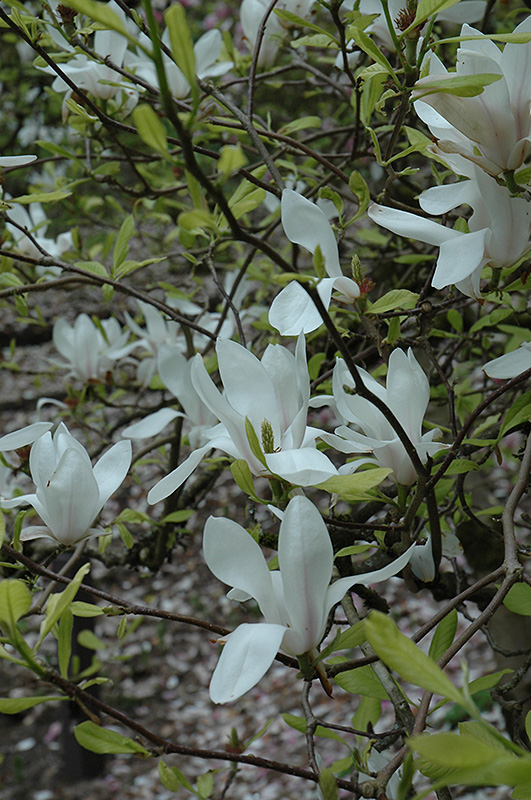The Plant Finder
Have a specific vision in mind for your outdoor space?
Search our database and find the perfect plants to meet your gardening needs.
White Saucer Magnolia
Magnolia x soulangeana 'Alba'
Height: 25 feet
Spread: 30 feet
Sunlight:
![]()
![]()
Hardiness Zone: 5a
Description:
An exceptional magnolia with abundant cup-shaped, fragrant white flowers in spring before the leaves emerge, coarse foliage and large spreading habit of growth; an ideal feature in the average home landscape, flowers are sensitive to late spring frosts
Ornamental Features
White Saucer Magnolia is covered in stunning fragrant white cup-shaped flowers held atop the branches in early spring before the leaves. It has attractive dark green deciduous foliage. The large pointy leaves are highly ornamental and turn an outstanding yellow in the fall.
Landscape Attributes
White Saucer Magnolia is an open multi-stemmed deciduous tree with a more or less rounded form. Its relatively coarse texture can be used to stand it apart from other landscape plants with finer foliage.
This is a relatively low maintenance tree, and should only be pruned after flowering to avoid removing any of the current season's flowers. It has no significant negative characteristics.
White Saucer Magnolia is recommended for the following landscape applications;
- Accent
- Hedges/Screening
- General Garden Use
Planting & Growing
White Saucer Magnolia will grow to be about 25 feet tall at maturity, with a spread of 30 feet. It has a low canopy with a typical clearance of 3 feet from the ground, and is suitable for planting under power lines. It grows at a medium rate, and under ideal conditions can be expected to live for 80 years or more.
This tree does best in full sun to partial shade. It requires an evenly moist well-drained soil for optimal growth. It is not particular as to soil type, but has a definite preference for acidic soils. It is somewhat tolerant of urban pollution. Consider applying a thick mulch around the root zone in winter to protect it in exposed locations or colder microclimates. This particular variety is an interspecific hybrid.

